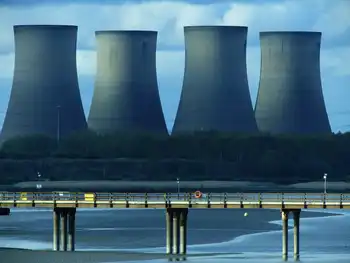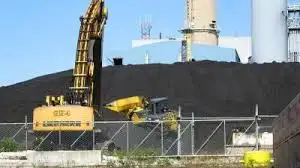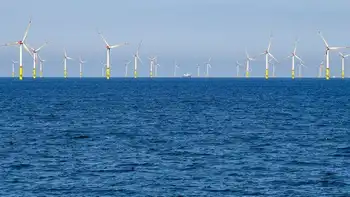Regulator was just doing her job
By Toronto Star
NFPA 70e Training - Arc Flash
Our customized live online or in‑person group training can be delivered to your staff at your location.

- Live Online
- 6 hours Instructor-led
- Group Training Available
Let us be clear what Keen's job was. She and the rest of her commission are not charged with ensuring that all Canadians lead happy and healthy lives. Even Harper might find that task difficult.
Rather her job, as specified in the Nuclear Safety and Control Act, was to ensure that radioactive material was created and used safely.
Two years ago, Keen's commission renewed Atomic Energy of Canada Ltd.'s operating licence for a reactor at Chalk River that produces medical isotopes. As a condition of licensing, AECL was required to upgrade safety systems on the 50-year-old reactor by installing two new pumps.
During a routine inspection last November, inspectors found the pumps still hadn't been installed. Which is why AECL shut the reactor down.
For a while, no one noticed. Then media stories began to appear suggesting that the country faced a severe isotope shortage that could lead to some medical tests and treatments being delayed.
It's probably worth noting that there is no record of anyone's health being harmed during this so-called crisis. It's also worth noting that by the time politicians became involved, AECL had already successfully installed one of the required backup pumps and was readying the second. On Dec. 11, an AECL official told the Commons that the necessary safety upgrades could be completed with just 16 more days of reactor down time.
Nonetheless, the three opposition parties – short-sighted as always – eagerly supported the government's decision to pass an emergency law that allowed the reactor to reopen before it was safe.
Now those same opposition parties seem surprised that the government has fired the regulator that they helped to undercut.
The government's case, articulated by Natural Resources Minister Gary Lunn at a Commons committee, is that it was Keen's job to get Chalk River up and running. In fact, as the minister responsible for AECL, that task belonged to him. Her job under the law was to set and enforce nuclear safety standards – which she did.
The exact nature of the government's game is unclear. Green Leader Elizabeth May is probably close to the truth when she says Harper is trying to defang the regulatory watchdog at the behest of Canada's nuclear industry. Keen and AECL already were at loggerheads, particularly over her insistence that its new reactors be strong enough to withstand the impact of a large plane crash (a not unreasonable requirement in the post 9/11 world).
Certainly, Lunn's arguments made little sense. He characterized AECL's failure to meet the regulator's safety standards as a "dispute" between two agencies – which is rather like suggesting that someone who breaks the law is having a "dispute" with the convicting judge. He also insisted the issue was one of "licensing" rather than safety, even though the entire point of licensing a nuclear reactor is to ensure its safe operation.
And he made the disturbing claim, not reflected in law, that the government has the right to fire this and any future head of the nuclear regulatory commission at will and without cause.
All of which would render impotent a quasi-judicial commission that – until now at least – has existed for a very good reason.











